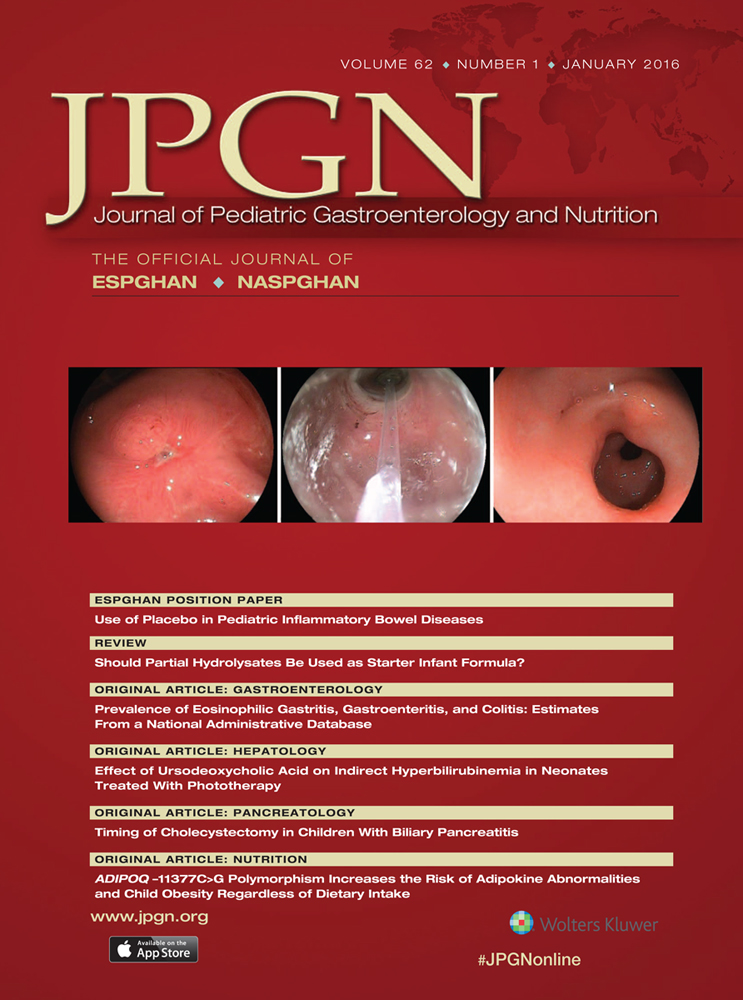Effectiveness of Enteral Versus Oral Nutrition With a Medium-Chain Triglyceride Formula to Prevent Malnutrition and Growth Impairment in Infants With Biliary Atresia
The authors report no conflicts of interest.
ABSTRACT
Objectives:
The aim of this study was to compare the effectiveness of oral (PO) versus enteral nutrition (EN) medium-chain triglyceride (MCT) containing–formula to prevent malnutrition and growth impairment in infants with biliary atresia (BA) waiting for a liver transplant.
Methods:
A total of 15 infants, 3 to 9 months old with BA were included. They were randomly assigned to either PO or EN. For 12 weeks, both groups received an MCT formula fortified with glucose polymers and corn oil to reach a caloric density between 0.8 and 1 kcal/mL. The formula given to the PO group was administered ad libitum and that given via EN was infused through a nasogastric tube to reach 140% of the energy intake recommended by the Dietary Recommended Intake guidelines. Protein intake was adjusted to 4 to 5 g/kg present weight. Outcome variables were growth and nutritional status evaluated periodically by anthropometric indicators. Biochemical and hematological variables were evaluated through the study.
Results:
Baseline clinical, nutritional, biochemical, and hematological variables showed no differences between the study groups. Baseline length/age was <−2 SD in 10 of the 15 patients; in the PO group, it fell <−3 SD, whereas in the EN group, it remained stable. Head circumference z score dropped 0.6 SD in the PO group, whereas in the EN group it remained stable. Triceps skinfold values improved in the infants taking EN, P < 0.001. The frequency of adverse effects—respiratory infection and diarrhea—was higher in the EN group. No biochemical or hematological differences were observed between the study groups throughout the study.
Conclusions:
A 12-week EN trial with an MCT-fortified formula prevented malnutrition and growth impairment in infants with BA waiting for a liver transplant.




